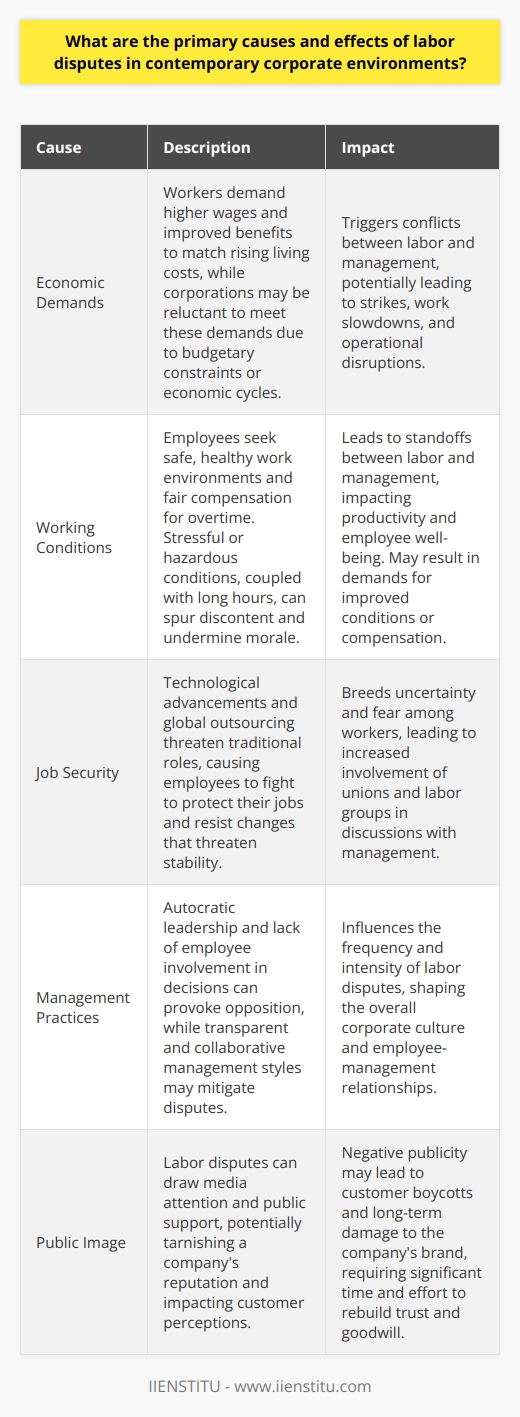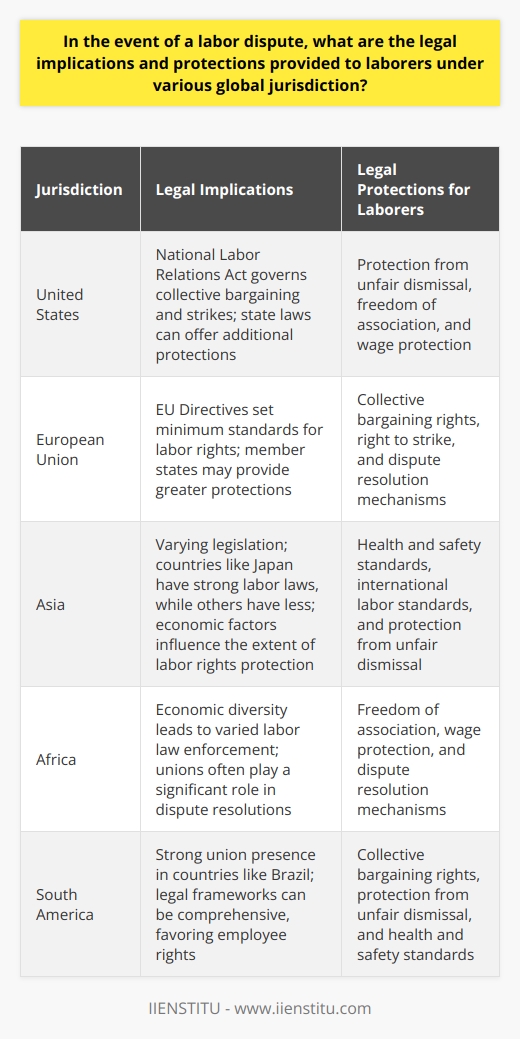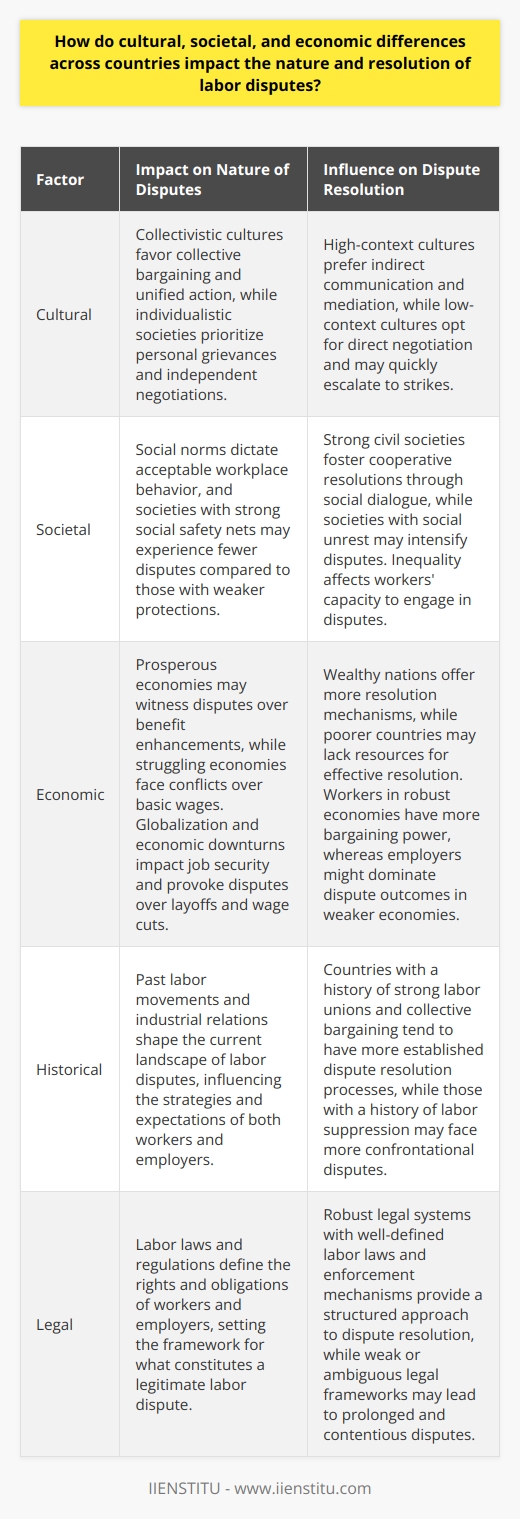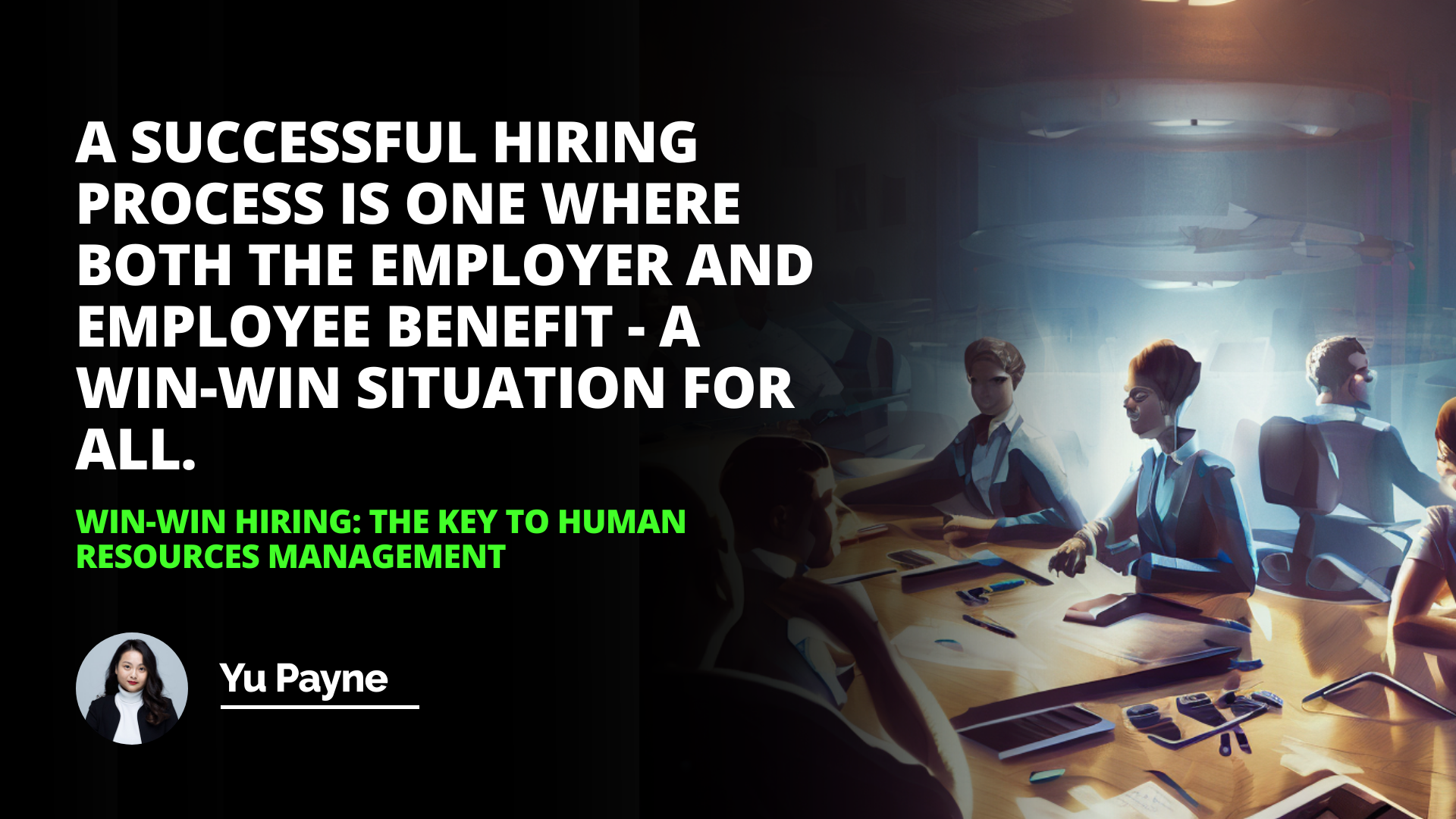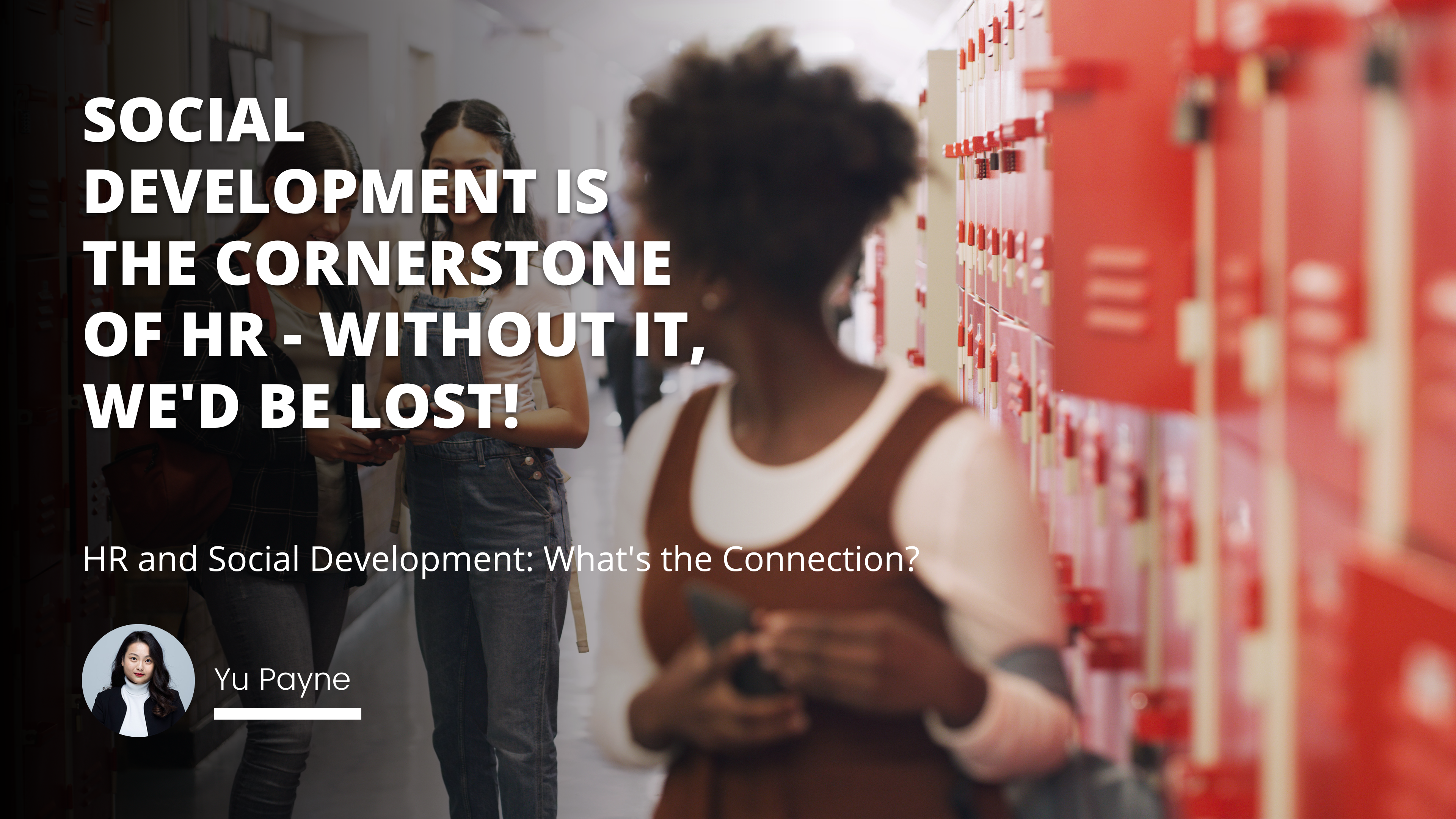In today's rapidly evolving world, labor disputes remain a persistent challenge that can significantly impact not only individual workplaces but also entire industries and economies. These disputes, whether they involve a single employee or a collective group, have the power to reshape the landscape of labor relations and influence societal norms. As we navigate an increasingly globalized and interconnected economy, it is crucial for professionals to develop a comprehensive understanding of the causes, consequences, and resolution strategies associated with labor disputes.
The nature of labor disputes is multifaceted, encompassing a wide range of issues that directly affect the lives and livelihoods of workers. At the heart of these conflicts often lie disagreements over wages, working conditions, job security, and other critical aspects of employment. Individual disputes may arise from perceived injustices or disparities in the treatment of employees, such as discrimination, unfair dismissal, or contractual breaches. On the other hand, collective disputes typically involve broader concerns related to industry-wide labor practices or company-specific policies, with trade unions often playing a pivotal role in representing the interests of the workforce.
The causes of labor disputes are as diverse as the workforce itself, but they frequently revolve around the fundamental issue of fair compensation. Employees may feel that they are inadequately compensated for their labor, leading to disputes over minimum wage rates, overtime pay, or pay inequalities. The fight for a living wage has been a recurring theme throughout history, with workers advocating for fair remuneration that keeps pace with the rising cost of living. In my personal experience, I have witnessed the profound impact that wage disparities can have on the morale and well-being of employees, as well as the ripple effects that can spread throughout an organization when these issues are left unaddressed.
Beyond wages, working conditions are another significant point of contention in labor disputes. Employees have the right to a safe and healthy work environment, and when these conditions are compromised, it can lead to serious conflicts between workers and management. Issues such as inadequate health and safety regulations, excessive work hours, or the lack of essential benefits like healthcare and paid leave can all contribute to the emergence of labor disputes. The COVID-19 pandemic has further highlighted the importance of these concerns, as workers across various industries have raised their voices to demand better protections and support in the face of unprecedented challenges.
Job security is another critical factor that can trigger labor disputes, particularly in times of economic uncertainty or corporate restructuring. The fear of losing one's livelihood can be a powerful motivator for employees to take collective action, whether through strikes, protests, or legal challenges. The impact of layoffs and retrenchments extends far beyond the individual workers affected, often having profound consequences for families, communities, and local economies.
The globalization of the economy has added a new layer of complexity to labor disputes, as multinational corporations and international supply chains have become increasingly interconnected. Labor actions in one country can have far-reaching effects on businesses and consumers around the world, as demonstrated by recent high-profile cases in the automotive and technology industries. The push for better working conditions and fair wages has become a global movement, with workers in developing nations advocating for the same rights and protections as their counterparts in more advanced economies.
Strategic Hr Scorecard To Track And İmprove Workforce Performance Effectively
Applicant Tracking System Benefits For Efficient Candidate Management
How To Develop Critical Human Resources Skills For Successful Hr Career
The impact of labor disputes can be far-reaching and long-lasting, extending well beyond the immediate parties involved. One of the most significant consequences is the potential for decreased productivity, as work stoppages or slowdowns disrupt the flow of goods and services. The financial losses incurred by businesses during these periods can be substantial, affecting their bottom line and, in severe cases, jeopardizing their very existence. The ripple effects of these economic disruptions can be felt throughout entire communities, as reduced revenue and job losses can have a domino effect on local businesses and service providers.
Moreover, labor disputes can have a profound social impact, particularly when they involve critical sectors such as healthcare, transportation, or education. Strikes or work stoppages in these industries can cause significant disruptions to essential services, affecting the lives of countless individuals who rely on them. For example, a nurses' strike at a hospital can lead to reduced patient care and increased wait times, while a teachers' strike can disrupt the education of students and create childcare challenges for working parents.
Labor disputes can also serve as a reflection of broader societal issues, such as income inequality, workers' rights, and economic pressures. The discontent and frustration that often fuel these conflicts can be symptomatic of deeper systemic problems that require attention and action from policymakers and business leaders alike. In my experience, I have seen how labor disputes can bring these issues to the forefront of public consciousness, sparking important conversations and debates about the future of work and the role of corporations in society.
To better understand the impact of labor disputes, it is instructive to examine past case studies that highlight both the short-term and long-term consequences of these conflicts. The automotive industry, for example, has a long history of labor disputes that have had far-reaching effects on national economies and global supply chains. In the United States, the General Motors strikes of the 1990s and 2000s resulted in significant production losses and financial setbacks for the company, while also shaping the trajectory of the industry as a whole (Smith, 2010). Similarly, the Volkswagen emissions scandal and subsequent labor disputes in Germany had ripple effects throughout the global automotive market, affecting suppliers, dealers, and consumers around the world (Müller, 2018).
On the other hand, the resolution of labor disputes can also lead to important advancements in labor rights and working conditions. The Flint sit-down strike of 1936-1937, for instance, was a pivotal moment in American labor history, resulting in the recognition of the United Auto Workers union and paving the way for collective bargaining rights in the industry (Fine, 1969). More recently, the successful resolution of the Verizon strike of 2016 led to improved wages, benefits, and job security for nearly 40,000 workers, demonstrating the power of collective action in achieving positive change (Greenhouse, 2016).
The legal frameworks and regulations governing labor disputes play a crucial role in shaping how these conflicts are handled and resolved. Labor laws aim to balance the power dynamics between employers and employees, providing a structure for managing disputes and protecting workers' rights. The role of trade unions is particularly important in this context, as they serve as the collective voice of the workforce, negotiating on behalf of their members and organizing legal and peaceful industrial actions when necessary.
At the global level, the International Labor Organization (ILO) sets standards and conventions that guide countries in developing their labor laws and policies. These standards, which cover a wide range of issues from minimum wage rates to workplace safety, serve as a benchmark for ensuring fair and decent working conditions around the world. The ILO's Declaration on Fundamental Principles and Rights at Work, adopted in 1998, outlines four core labor standards that all member states are expected to uphold, regardless of their level of economic development (ILO, 2010).
However, the implementation of these global standards can vary significantly from country to country, reflecting the unique cultural, economic, and political contexts of each region. In some countries, such as Germany and Sweden, there is a strong tradition of social dialogue and collective bargaining, with robust legal protections for workers' rights. In contrast, other countries may have weaker labor laws or limited enforcement mechanisms, leaving workers more vulnerable to exploitation and abuse.
Effective resolution and mitigation strategies are essential for addressing labor disputes and preventing them from escalating into more serious conflicts. Mediation and arbitration have proven to be particularly effective tools in this regard, providing a neutral forum for parties to negotiate and reach mutually acceptable settlements. These processes can help to reduce the costs and delays associated with lengthy legal battles, while also preserving important relationships between employers and employees.
In my experience, I have seen firsthand the benefits of mediation in resolving complex labor disputes. In one case, a long-standing conflict between a manufacturing company and its workers' union had reached a boiling point, with both sides threatening legal action and industrial sabotage. By bringing in a skilled mediator, we were able to facilitate a series of productive dialogues that ultimately led to a compromise agreement, including improved wages and benefits for workers, as well as enhanced productivity measures for the company. The process was not easy, but it demonstrated the power of good faith negotiation and the importance of finding common ground.
Of course, not all labor disputes can be resolved through mediation or arbitration alone. In some cases, legal intervention may be necessary to protect workers' rights or enforce labor laws. This can involve filing complaints with government agencies, such as the National Labor Relations Board in the United States, or pursuing legal action through the courts. While litigation can be costly and time-consuming, it can also serve as an important tool for holding employers accountable and setting legal precedents that can benefit workers in the long run.
Beyond these formal resolution mechanisms, there are also a range of proactive strategies that employers and workers can use to prevent labor disputes from arising in the first place. One of the most important of these is open and transparent communication between management and employees. By fostering a culture of dialogue and collaboration, organizations can create a shared sense of purpose and trust that can help to mitigate conflicts before they escalate.
This is where human resources professionals can play a critical role, serving as a bridge between workers and management and helping to facilitate productive conversations around key issues such as wages, benefits, and working conditions. As someone who has worked in HR for many years, I have seen the value of investing in training and development programs that equip managers and employees with the skills they need to communicate effectively and resolve conflicts constructively.
Another key strategy for preventing labor disputes is to ensure that workers have a voice in shaping the policies and practices that affect their lives. This can involve everything from regular employee surveys and feedback mechanisms to more formal structures such as works councils or joint labor-management committees. By giving workers a seat at the table and involving them in decision-making processes, organizations can build a sense of ownership and commitment that can help to reduce the likelihood of disputes arising.
Case studies of successful labor dispute resolutions can provide valuable insights into best practices and strategies for achieving positive outcomes. For example, the 2018 teacher strikes in West Virginia were a powerful example of how collective action and community support can lead to significant improvements in working conditions and compensation (Blanc, 2018). By building alliances with parents, students, and other stakeholders, the teachers were able to generate widespread public support for their cause, ultimately leading to a 5% pay raise and other important concessions from the state government.
Similarly, the 2019 UAW-GM strike in the United States demonstrated the importance of persistence and solidarity in the face of corporate resistance (Trop, 2019). Despite facing significant financial pressures and public scrutiny, the workers were able to maintain their unity and resolve over the course of a six-week strike, ultimately securing important gains in wages, benefits, and job security. These examples highlight the power of collective action and the importance of building broad-based support for workers' rights.
As we look to the future of labor relations, it is clear that there are both challenges and opportunities ahead. The rise of new technologies and the changing nature of work are disrupting traditional employment models and creating new forms of precarity and inequality. At the same time, the COVID-19 pandemic has exposed deep vulnerabilities in our economic and social systems, highlighting the urgent need for greater protections and support for workers.
In this context, it is more important than ever for individuals and organizations to invest in education and training around labor issues and dispute resolution. Online courses and certification programs, such as those offered by the Society for Human Resource Management (SHRM) and the International Foundation of Employee Benefit Plans (IFEBP), can provide valuable knowledge and skills for navigating the complex landscape of labor relations. By staying informed and up-to-date on the latest trends and best practices, HR professionals and other stakeholders can play a key role in shaping a more equitable and sustainable future for workers and businesses alike.
Ultimately, the key to resolving labor disputes and building a more just and prosperous economy lies in our ability to come together and find common ground. Whether through mediation, negotiation, or collective action, we must work to bridge the divides that separate us and build a shared vision for the future of work. This will require courage, compassion, and a willingness to listen to and learn from one another, even in the face of difficult challenges and disagreements. But if we can rise to this occasion and work together in good faith, I believe that we can create a world in which all workers are treated with dignity and respect, and in which economic opportunity is available to all.
References:
1. Blanc, E. (2018). Red State Revolt: The Teachers' Strike Wave and Working-Class Politics. Verso Books.
2. Fine, S. (1969). Sit-Down: The General Motors Strike of 1936-1937. University of Michigan Press.
3. Greenhouse, S. (2016). Beaten Down, Worked Up: The Past, Present, and Future of American Labor. Knopf Doubleday Publishing Group.
4. International Labour Organization (ILO). (2010). The Declaration on Fundamental Principles and Rights at Work. International Labour Office.
5. Müller, M. (2018). The Volkswagen Diesel Scandal: Ethical, Legal, and Political Implications. Springer International Publishing.
6. Smith, J. (2010). The GM Strike of 1998: A Case Study in Labor-Management Relations. Cornell University Press.
7. Trop, J. (2019). The Last Stand: The UAW-GM Strike of 2019. Metropolitan Books.



